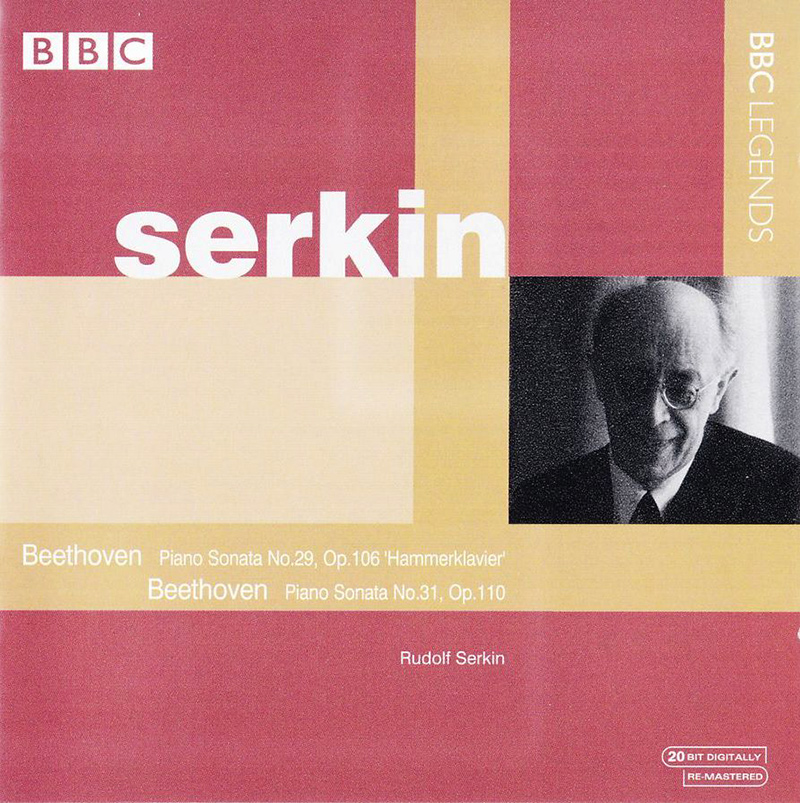Logowanie
Dziś nikt już tak genialnie nie jazzuje!
Bobby Hutcherson, Joe Sample
San Francisco
SHM-CD/SACD - NOWY FORMAT - DŻWIĘK TAK CZYSTY, JAK Z CZASU WIELKIEGO WYBUCHU!
Wayne Shorter, Freddie Hubbard, Herbie Hancock, Ron Carter, Elvin Jones
Speak no evil
UHQCD - dotknij Oryginału - MQA (Master Quality Authenticated)
Chesky! Niezmiennie perfekcyjny
Winylowy niezbędnik
ClearAudio
Double Matrix Professional - Sonic
najbardziej inteligentna i skuteczna pralka do płyt winylowych wszelkiego typu - całkowicie automatyczna
BEETHOVEN, Rudolf Serkin
Piano Sonata No.29 in B flat, Op.106 (Hammerklavier) / Piano Sonata No.31 in A flat, Op.110
Some discs simply demand to be heard and this is one of them. A few months ago BBC Legends released Rudolf Serkin playing, with magnificently uncompromising power, the Diabelli Variations. Here we have more of the same. The opening of the 'Hammerklavier' Sonata is didactic and slower than the metronome marking, but it certainly is arresting. There are also quite a few wrong notes, so those addicted to sterile technical perfection should approach with care. Serkin slows for the second subject and makes it sound Chopinesque. He observes the exposition repeat, and like all great re-creative artists uses this as an opportunity to present the music in a new light. This is particularly apparent in the second subject, which is phrased in a totally different way. In the development the delineation of line and rhythm is quite exceptional and a foretaste of what Serkin will do in the finale. The scherzo is fast and dances impudently. In the Adagio – surely the greatest slow movement in piano literature – the opening paragraphs are almost matter-of-fact and too fast. Unfortunately, whenever I encounter this music I hear Solomon making time stand still as he spends 22 sublime minutes over it, as opposed to Serkin’s 17. Nevertheless, in Serkin’s hands there is a sense of progression, and each time the opening subjects return they seem to become softer and more introspective. There are oases of total calm in the performer’s logical progression to the coda. The last movement is a tour de force. Each element and voice of the Fugue is presented with extraordinary power and originality. You hear every bar almost as though for the first time. You also realise how shocked the first audience must have been when confronted with such alarming and transcendental genius. Opus 110 is rightly seen as a vast arch. The opening is a true Moderato and there is a clear sense of discourse between the hands. As in the 'Hammerklavier', the pedalling is masterly, allowing the textures and rhythms to be beautifully contrasted. The scherzo is didactic, with echoes of Bach, yet the downward cadence which prepares the way for the Adagio is impressionistic. The slow movement itself is beautifully sculpted, with a tolling bass line and free right-hand. The central Fugue is, as in Opus 106, marvellously voiced, with the return to the opening seamlessly integrated. Once again, the final Allegro has immense power and concentration. To add to the desirability of this release the sound is excellent if a little fuller in the stereo Opus 110. This is great Beethoven playing on a disc that, regardless of how many versions of these works you already own, demands shelf space.


































